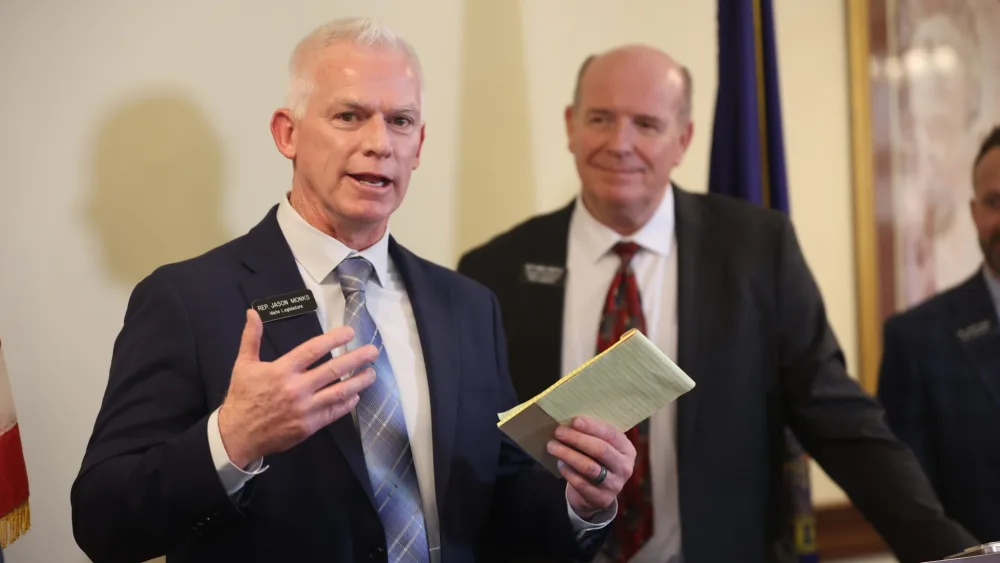BOISE, ID – An Idaho legislative task force, aiming to make reductions and consolidations to improve government efficiency, dove deeper on Monday into considering changes or a repeal of Medicaid expansion.
The DOGE Task Force – named for the federal Department Of Government Efficiency that was previously headed by billionaire Elon Musk — took a more detailed look at Medicaid expansion at a meeting at the Capitol in Boise, after members previously indicated the policy was a major target, the Idaho Capital Sun reported.
“This is no longer that hand-up that it was sold as … This has now become just a straight handout program,” Rep. Josh Tanner, R-Eagle, said Monday.
Medicaid expansion is a policy approved by voters in 2018 to provide health care coverage to able-bodied adults who fell in the gap between earning too much to qualify for traditional Medicaid and not enough for tax credits to be able to afford private insurance through the state marketplace. Its implementation also came with the elimination of funds used to pay for health care services provided to those who were uninsured.
Since Medicaid expansion went into effect in 2020, there have been multiple unsuccessful attempts in the Legislature to repeal it.
More than 87,000 Idahoans are enrolled in Medicaid expansion, according to numbers updated on Sept. 2 by the Idaho Department of Health and Welfare.
Deputy Director of Medicaid Sasha O’Connell provided task force members with an overview of the Medicaid program and answered pointed questions about potential cost-cutting changes that could be made, such as capping lifetime use and moving more participants onto private insurance through the federal premium tax credit.
DOGE Committee Co-Chair Sen. Todd Lakey, R-Nampa, asked O’Connell what the state’s authority was to make changes to the program — which is largely funded by federal money, along with state funds. Medicaid is mainly regulated federally, though states may ask for permission to change the way they administer their own programs through waivers.
O’Connell responded that states are given a range of options, but some of those options may mean taking a smaller matching rate from the federal government. Currently, Idaho receives $90 from the federal government for every $10 it puts into Medicaid expansion benefits; choosing to change the program so it doesn’t align with federal regulations around it may mean reducing this, she said.
What changes are already underway for Medicaid expansion?
The state is in the process of asking federal authorities to make certain changes, made through state legislative action and supported by passage of the federal “One Big Beautiful Bill Act,” including:
- Implementing work requirements, meaning participants will show that they worked, volunteered or participated in workforce training for at least 20 hours a week, with some exemptions for those above a certain age, parents of very young children, and caregivers for adult children with disabilities.
- The state will double how often it checks if people are eligible, going from once a year to every six months.
- Idaho Medicaid will increase cost-sharing among participants, which could include increased copayments or premiums.
- The state will end automatic renewal that would use information from other public assistance programs to demonstrate continued eligibility.
The state is also looking to ask for permission to allow those who earn between 100% and 138% of federal poverty guidelines to shift to private insurance through the state marketplace using the federal premium tax credit. Idaho previously sought permission to make this change, and the Centers for Medicare and Medicaid Services denied the request in 2019.
The premium tax credit is set to expire at the end of 2025, and thus far no proposal has advanced out of Congress to extend the credits. The health care advocacy group Idaho Voices for Children previously told the Sun that an estimated 35,000 Idahoans could lose health care coverage without the credits because health care insurance would skyrocket for many.
Tanner asked O’Connell to come back with more policies the Legislature could enact that would cut costs of Medicaid. He expressed frustration that the program was growing, going from about 64,000 enrollees in January 2020 to 87,657 this month.
“When you look at the labor reports, we have a ton of jobs out there, it’s not like we’re lacking in this,” he said. “… We need as many options as we can for cuts.”
This story first appeared on Idaho Capital Sun.





